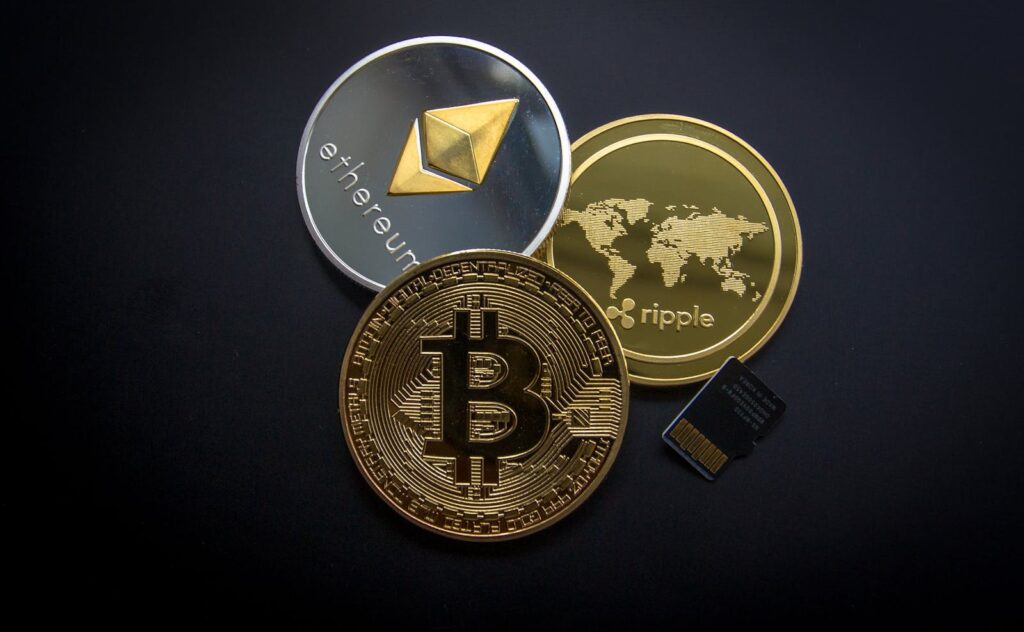Entering the world of cryptocurrency can feel overwhelming, especially for newcomers navigating the complexities of digital assets. The best crypto wallets for beginners offer a simple, secure way to store, manage, and transact cryptocurrencies without the steep learning curve. In this article, we’ll explore top options, essential features, and practical advice to help you get started safely and confidently. Whether you’re holding Bitcoin, Ethereum, or other tokens, choosing the right wallet is crucial for protecting your investments and building a solid foundation in crypto.
Understanding Crypto Wallets and Their Importance for Beginners

Crypto wallets are essential tools that allow users to interact with blockchain networks, store private keys, and manage digital currencies. For beginners, selecting the best crypto wallets means prioritizing ease of use, security, and reliability to avoid common pitfalls like hacks or lost funds. This section dives into the fundamentals, helping you grasp why the right wallet can make or break your crypto journey.
What Exactly is a Crypto Wallet?
A crypto wallet isn’t a physical item like a traditional wallet; it’s software or hardware that securely stores your cryptocurrency keys. These keys act as your digital signature for transactions, making wallets the gateway to buying, selling, and holding assets.
For beginners, understanding the difference between types of wallets—such as hot wallets (online) and cold wallets (offline)—is vital. Hot wallets, like mobile apps, offer convenience for everyday use but are more vulnerable to cyber threats. Cold wallets, such as hardware devices, provide enhanced security by keeping keys offline, which is ideal for long-term storage.
The rise of user-friendly interfaces has made crypto wallets more accessible. For instance, many modern wallets integrate educational resources, simplifying the onboarding process. This means beginners can learn about blockchain basics while setting up their first account, reducing the intimidation factor.
Beyond storage, wallets often include features like staking rewards or NFT support, adding value for new users. However, it’s crucial to start with a wallet that matches your needs—perhaps one with multi-currency support if you’re experimenting with various coins. By focusing on wallets designed for novices, you can build confidence and avoid the frustration of dealing with overly complex systems.
Why Beginners Should Prioritize Security Features
Security is the cornerstone of any crypto wallet, particularly for those new to the space who might not recognize subtle risks. The best crypto wallets for beginners incorporate built-in protections like two-factor authentication (2FA) and biometric logins, which add layers of defense against unauthorized access.
One key aspect is the use of seed phrases—random words that can recover your wallet if you lose access. For beginners, wallets that guide you through safely storing these phrases can prevent devastating losses. Additionally, features like automatic backups ensure your data is protected, even if your device fails.
As you delve deeper, consider how wallets handle encryption. Top options use advanced algorithms to safeguard private keys, making them resistant to hacking attempts. This is especially important in an era where phishing scams are rampant, as a secure wallet can include alerts for suspicious activity.
Ultimately, prioritizing security from the start fosters good habits. Beginners who choose wallets with these features not only protect their assets but also gain peace of mind, allowing them to focus on learning and growing their crypto portfolio.
Common Mistakes to Avoid When Starting Out
Many beginners rush into crypto without fully understanding wallet basics, leading to errors like exposing private keys or falling for fake apps. To mitigate this, always verify the wallet’s legitimacy through official sources and user reviews.
Another pitfall is overlooking compatibility. Not all wallets support every cryptocurrency, so beginners should select ones that align with their intended assets. For example, if you’re interested in Ethereum-based tokens, ensure the wallet integrates with the Ethereum network seamlessly.
Education plays a role here too. Wallets that offer tutorials or community support can help newcomers avoid these mistakes. By taking time to research and test demo versions, you can build a strong foundation and steer clear of costly errors.
In summary, avoiding common mistakes involves a mix of caution and preparation. With the right approach, beginners can navigate the crypto landscape safely and effectively.
Top Recommendations for Beginner-Friendly Crypto Wallets

When it comes to the best crypto wallets for beginners, the market offers a variety of options that balance simplicity with robust features. This section highlights standout choices, providing in-depth analysis to help you decide which one suits your needs. From mobile apps to hardware solutions, we’ll explore how these wallets stand out in a crowded field.
Overview of Leading Mobile Wallets
Mobile wallets have become a go-to for beginners due to their accessibility and ease of use. Apps like Trust Wallet and Coinbase Wallet top the list, offering intuitive interfaces that make managing crypto straightforward.
For instance, Trust Wallet supports over 40 blockchains and includes a built-in browser for decentralized apps (dApps), which is perfect for exploring the ecosystem without switching platforms. This feature alone can enhance a beginner’s experience by allowing seamless interactions with NFTs or DeFi projects.
Security is another strong point; these wallets use decentralized storage for keys, meaning you retain full control. Additionally, they often include wallet connect options for easy integration with exchanges, reducing the learning curve for new users.
In practice, beginners appreciate the quick setup process—typically involving just a few taps to create an account. This accessibility encourages adoption, as users can start holding assets almost immediately while learning advanced features at their own pace.
Hardware Wallets for Enhanced Security
If security is your primary concern, hardware wallets like Ledger Nano S or Trezor Model One provide offline protection that’s ideal for beginners storing larger amounts. These devices store keys on a physical chip, shielding them from online threats.
One advantage is the user-friendly setup, which includes clear instructions and compatibility with popular software. For example, Ledger’s interface pairs with a mobile app for transactions, making it less intimidating for novices.
Beyond basics, these wallets support multiple currencies and offer firmware updates to counter emerging risks. This ensures beginners can scale their usage as they grow more knowledgeable.
The tangible nature of hardware wallets also serves as a reminder of crypto’s importance, helping users develop responsible habits like regular backups.
Overall, for those prioritizing safety, hardware options are a worthwhile investment, providing peace of mind in an uncertain digital world.
Comparing Fees and User Interfaces
Fees can vary widely among wallets, impacting beginners on a budget. Mobile wallets often have lower transaction costs due to network integrations, while hardware ones might incur device purchase fees but offer long-term savings.
User interfaces are equally critical; apps with clean designs, like those from Exodus, reduce confusion with visual aids and tutorials. This makes it easier for beginners to navigate portfolios and execute trades.
When comparing, consider factors like customer support. Wallets with responsive teams, such as Binance Wallet, help resolve issues quickly, enhancing the overall experience.
In essence, evaluating fees and interfaces ensures you select a wallet that aligns with your preferences, setting the stage for a positive crypto journey.
Key Features and How to Choose the Right One

Selecting the best crypto wallets for beginners involves evaluating features that enhance usability and protection. In this section, we’ll break down what to look for and how to make an informed decision, ensuring you end up with a tool that supports your growth.
Essential Security and Backup Options
The cornerstone of any good wallet is robust security, including encryption and multi-signature support, which requires multiple approvals for transactions.
Backup features, like encrypted cloud storage, provide redundancy, safeguarding against device loss. For beginners, wallets with automatic reminders for backups are invaluable.
Moreover, integrating with hardware for added layers can elevate security further.
Adopting these options not only protects assets but also builds confidence in managing crypto independently.
User-Friendly Interfaces and Support Resources
Intuitive designs with customizable dashboards make wallets accessible, allowing beginners to monitor balances effortlessly.
Support resources, such as in-app guides or 24/7 chat, are crucial for quick learning and problem-solving.
Wallets that offer multilingual support broaden accessibility, catering to a global audience.
Ultimately, these elements turn a potentially overwhelming tool into an empowering one for newcomers.
Integration with Exchanges and Other Tools
Seamless integration with exchanges like Coinbase enables smooth fund transfers, simplifying the buying process for beginners.
Compatibility with dApps and NFTs expands functionality, letting users engage with the broader crypto world.
Tools like portfolio trackers provide real-time insights, aiding in decision-making.
By prioritizing integration, beginners can create a cohesive ecosystem that supports their evolving needs.
Frequently Asked Questions
What is the safest crypto wallet for beginners?
The safest crypto wallets for beginners are hardware options like Ledger or Trezor, as they store keys offline, minimizing exposure to online hacks. These wallets come with easy-to-follow setup guides and support multiple currencies, making them ideal for newcomers who want to prioritize security without dealing with complex software.
How do I choose between hot and cold wallets?
Hot wallets are suitable for everyday transactions due to their online accessibility, while cold wallets offer better long-term security by keeping assets offline. Beginners should start with a hot wallet for learning and gradually incorporate a cold one for storing larger amounts to balance convenience and safety.
Can I use a crypto wallet for multiple cryptocurrencies?
Yes, many of the best crypto wallets for beginners, such as Trust Wallet or MetaMask, support multiple cryptocurrencies. This feature allows you to manage a diverse portfolio in one place, but always ensure the wallet is compatible with the specific coins you plan to hold to avoid compatibility issues.
Are there any free crypto wallets available?
There are several free crypto wallets available, including mobile apps like Coinbase Wallet and Exodus, which don’t charge for downloads or basic usage. However, be aware that some may have transaction fees based on network costs, so research thoroughly to find one that fits your budget.
How do I recover a lost crypto wallet?
Recovering a lost crypto wallet typically involves using your seed phrase, a series of words provided during setup. For beginners, it’s crucial to store this phrase securely offline. If you’ve lost access without it, recovery might be impossible, so always back up your wallet as soon as you create it.
Conclusion
In summary, the best crypto wallets for beginners provide a blend of security, ease of use, and essential features to navigate the cryptocurrency world confidently. By exploring options like Trust Wallet for mobile convenience or Ledger for hardware security, newcomers can protect their assets while learning the ropes. Remember to prioritize key elements such as intuitive interfaces, robust backups, and compatibility to make informed choices that support long-term success in crypto. With the right wallet, you’re well-equipped to embark on your digital finance journey securely and effectively.


